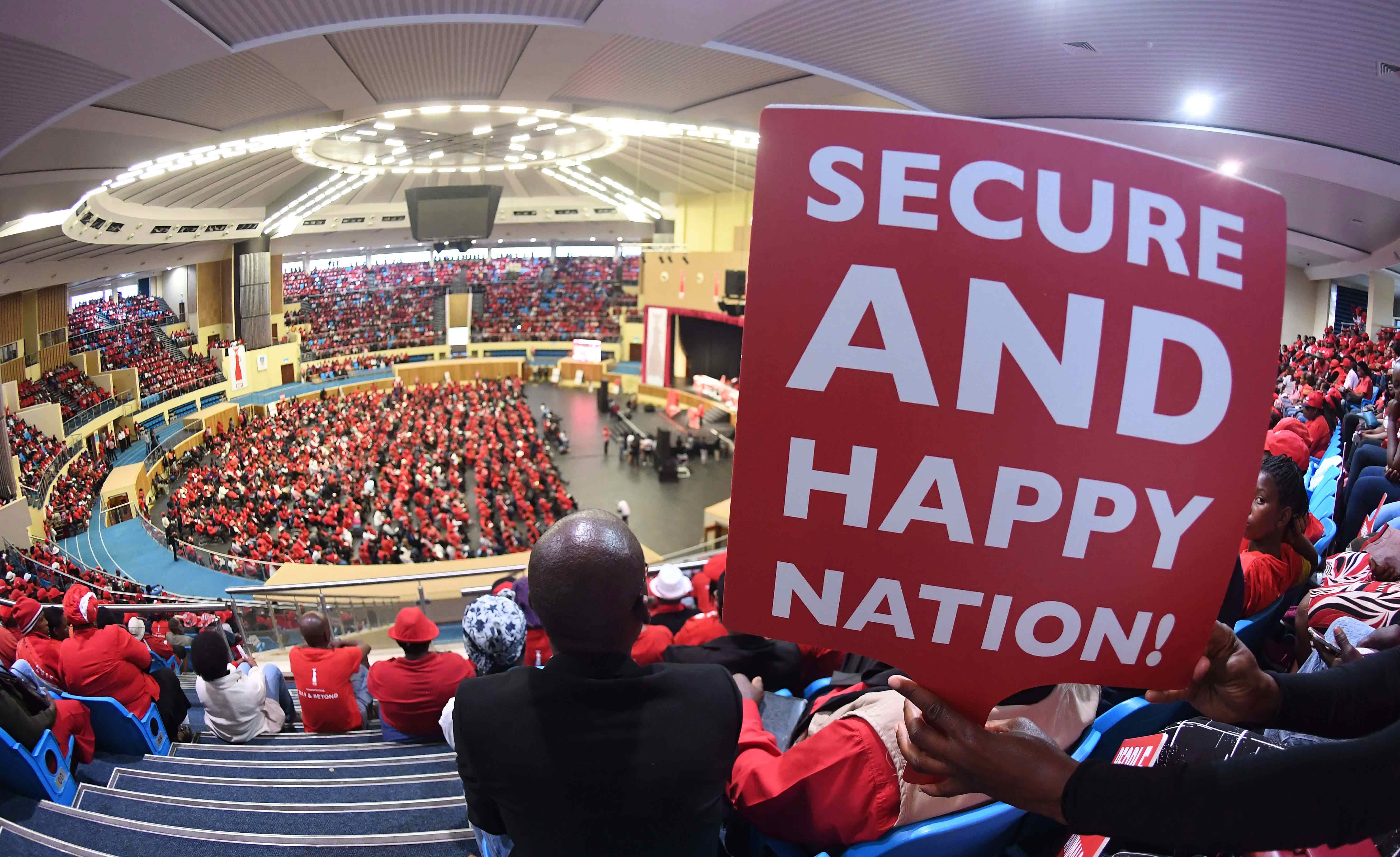Study puts UDC, BDP at 50/50
TEFO PHEAGE
An internal public opinion poll conducted for the Umbrella for Democratic Change (UDC) for projections into the outcome of the 2019 general elections has put the UDC almost at par with the ruling Botswana Democratic Party (BDP).
But a sympathiser within the UDC has informed this publication that the retrospect and prospect opinion polls commissioned by the party have confirmed with certainty 30 out of 57 constituencies and advised the party on exploiting the “fluid political environment” to capitalise on citizens who are “not yet committed to a particular party – especially the educated, urban residents, youth and speak to their challenges and problems and expectations”.
The UDC Manifesto speaks to youth unemployment, student community allowances, the girl child, the working class and the elderly, among other specific demographics.
UDC president Duma Boko has confirmed that they had engaged various political, demographic and statistics experts and analysts to look into their electoral chances, adding that the “feedback is positive”. But like his right hand man Dumelang Saleshando, he refused to shed light on the projections and recommendations, saying doing so would be akin to striking oneself in one’s foot.
Boko says they engaged experts from the continent and London who to provide a diagnosis into the future and reception of their message, among other key electoral issues. “They are people with many years experience researching political attitudes have and extensive methodological expertise,” he said.
Public opinion polls now play an important role in politics, and unlike previously, the systems have become more scientific. They are used throughout the course of election campaigns by candidates to see who is ahead and who is likely to emerge victorious. The results of these polls in turn largely determine where future campaign monies are to be spent and where each candidate’s efforts will be concentrated until the close of the campaign. In Botswana, the trend has been that there are some no-go areas understood to be traditional strongholds of the BDP. However, the BDP’s traditional dominance of the electoral landscape is facing an unprecedented challenge following the departure of the influential former president of the country and the BDP, Ian Khama. The UDC has fielded candidates in all the constituencies.
Boko confirmed that their “experts, who will be with them until the elections, are currently looking into the Khama factor in this year’s elections”. Although a huge gain for the UDC, Khama is likely to be a spoiler in some constituencies where the UDC had high hopes. The polls report, according to our source, ascribes the UDC’s upperhand to BCP and BNF previous election numbers which scored over 50 percent in most constituencies but warns that the dynamics may have drastically changed in some areas.
Our source said the primary reports have emphasised on messaging and branding as key to these elections. The UDC seems to have won the manifesto battle as the ruling BDP is now conceding in some areas and admitting that the UDC has a point. A case in point is the P3000 minimum wage and 100 000 jobs dispute which the BDP initially dismissed as not attainable.
Opinion polls generally look at what people believe, how they feel about something and in what way they will act. Public opinion analysts and professional polling organisations are, however, not perfect and often lead to colossal mis-predictions. In some countries some consultancy groups have left elections with bruised credibility.
Recommendations..
“We have been advised to target a percentage of undecided voters because a whopping number of people said they were unsure of where to cast their vote. These projections we have been warned may be good but the numbers are subject to change, owing to the fluidity of the political playground. As the campaigns heat up in the final stretch towards October, floating voters will decide. We have further been asked to tackle voter apathy which may have taken over following many political factors like broken promises, uninspiring politicians, defections and disgruntlement,” said our source who said he was not willing to divulge information on the constituencies and recommendations as that would be detrimental to the party.
BDP enters the elections on hope
Meanwhile, the ruling party has not engaged any party or consultancy to gauge their chances this time around, unlike the opposition parties. Despite this, the UDC study has singled them out as their main competitor.
Its secretary general, Mpho Balopi confirmed that they have not done any diagnosis this time around. “It is true that we have not done anything this election year. But we remain confident because our party is in good shape and we have a president who has renewed the hopes of this nation,” he said.
Asked about the 2014 opinion polls, Balopi said their areas of focus were the brand, messaging and how people were receiving their messages and manifesto, among others.
Alliance for Progressives
An ambitious young party which has decided to swallow more than it can chew, the AP has fielded candidates for Parliament in 44 constituencies and over 326 council candidates. The party has also received its report from its public opinion polls consultants, according to its chairman, Pius Mokgware.
“We cannot discuss anything contained in the report with outsiders but we can confirm that we have received the report and are implementing it,” he said.




